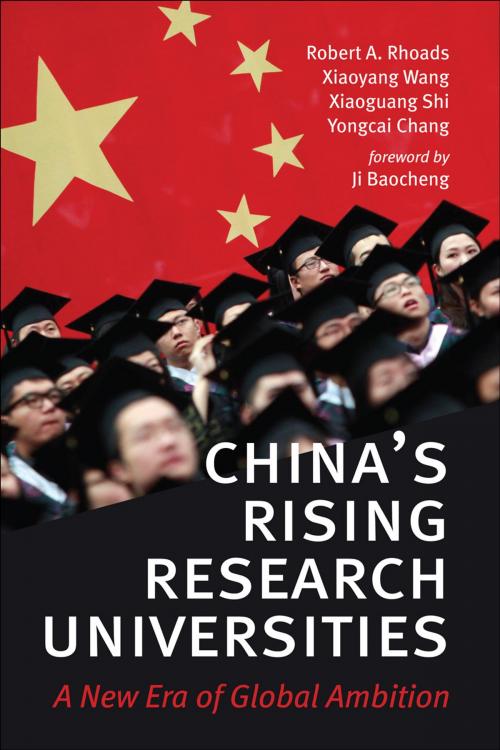China's Rising Research Universities
A New Era of Global Ambition
Nonfiction, Reference & Language, Education & Teaching, Higher Education, Social & Cultural Studies, Political Science, International| Author: | Robert A. Rhoads, Xiaoguang Shi, Yongcai Chang, Xiaoyang Wang | ISBN: | 9781421414546 |
| Publisher: | Johns Hopkins University Press | Publication: | September 22, 2014 |
| Imprint: | Language: | English |
| Author: | Robert A. Rhoads, Xiaoguang Shi, Yongcai Chang, Xiaoyang Wang |
| ISBN: | 9781421414546 |
| Publisher: | Johns Hopkins University Press |
| Publication: | September 22, 2014 |
| Imprint: | |
| Language: | English |
This timely study charts the intentional and accelerated rise of China’s research universities by analyzing how state policy has transformed key institutions. Specifically, it addresses how state initiatives have influenced faculty life and academic culture at these campuses. Based on empirical studies at four of the nation’s leading universities and including more than seventy semi-structured interviews with professors and key administrators, China's Rising Research Universities sheds light on fundamental changes in faculty life.
These changes amount to nothing short of a dramatic transformation of academic culture at the nation’s top universities. National initiatives driven by China’s Ministry of Education seek to develop two overlapping sets of leading universities, through what are known as Project 211 (which affects about 100 universities) and Project 985 (which affects about 40 universities). Project 985 enhancements are particularly important to the country’s efforts to strengthen university science and research.
The book also addresses the broader context of higher education reform in China, arguing that recent efforts to elevate the nation’s top universities toward world-class standing represent a shift in higher education policy development and implementation leading to what is described as China’s Global Ambition Period.
Offering important insights into the changing higher education policy context in an age increasingly defined by globalization, China's Rising Research Universities will appeal to higher education leaders and policymakers; students, faculty, and scientists who interact with Chinese counterparts; and scholars of international and comparative studies.
This timely study charts the intentional and accelerated rise of China’s research universities by analyzing how state policy has transformed key institutions. Specifically, it addresses how state initiatives have influenced faculty life and academic culture at these campuses. Based on empirical studies at four of the nation’s leading universities and including more than seventy semi-structured interviews with professors and key administrators, China's Rising Research Universities sheds light on fundamental changes in faculty life.
These changes amount to nothing short of a dramatic transformation of academic culture at the nation’s top universities. National initiatives driven by China’s Ministry of Education seek to develop two overlapping sets of leading universities, through what are known as Project 211 (which affects about 100 universities) and Project 985 (which affects about 40 universities). Project 985 enhancements are particularly important to the country’s efforts to strengthen university science and research.
The book also addresses the broader context of higher education reform in China, arguing that recent efforts to elevate the nation’s top universities toward world-class standing represent a shift in higher education policy development and implementation leading to what is described as China’s Global Ambition Period.
Offering important insights into the changing higher education policy context in an age increasingly defined by globalization, China's Rising Research Universities will appeal to higher education leaders and policymakers; students, faculty, and scientists who interact with Chinese counterparts; and scholars of international and comparative studies.















